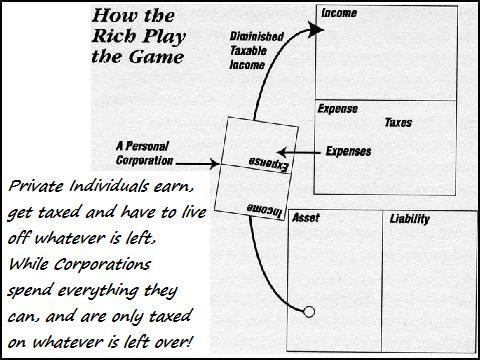The "Free Rider" Problem is NOT a Problem for Anarchy.
When you say you disagree with states as a concept people very often say something like "How will you get streetlights?????" Of course, you can substitute for street lights any other thing that the government happens to have a monopoly on doing at the moment, and you really have to wonder, if government provided ball bearings and had a monopoly on that would statitsts be saying, "How would we get steering wheels without government? That's maaaaaadness."
This is called the free-rider problem, and it's one of the most basic problems in economics. If you have a public good that many people benefit from, how do you stop people who don't pay from benefitting?
What I find most frustrating is people raise these objections as though all of the anarchists suddenly have to go have to go "Bah dub a duh duh good point I have never thought of that before, you're right, boo for anarchism, that's insurmountable, I'm now a statist... yup, giving all the guns to a single central authority who are allowed to violently extract income for everyone and distribute it as they might to whoever bribes them, or whomever they want to bribe to vote for them, sounds like a muuuuuch better solution. How very rational."
Such a basic objections, when they are presented with accompanying smugness rather than genuine curiosity, are kind of insulting to your intellegence, because you'd have to be an idiot not to have thought of these problems. You get to wishing people would just pick up a book and learn a little about a theory before assuming they can knock it down in one blow.
Their argument basically goes ... "I get such-and-such for free and don't have to raise a finger, therefore the system in place is adequate."
But that does not logically follow. Just because there is a system in place does not meant is good, efficient, cheap, practical, suitable long term, preferable to what could be in it's place, etc.
What is in effect being argued, is that the combined ingenuity of every individual in society who may have a versted interest in solving the free-rider problem when it comes to street lighting say, or quite frankly anything, is going to be inferior to the cenral dictat of a bunch of beaurocrats who are not even spending their own resources, and have less vested interest in solving any given problem than of bribing people to vote for them.
The make a "state of the gaps" argument and will forever point to this hole or that hole which is something which the state has monopolised and therefore cannot be met by another institution, be it a business, charity, consumer or worker cooperative, community project, or any other institution which is voluntary. They want you to say how exactly an endless list of things will be provided without a state, if you can't answer even one of them they go "Ha! See! Anarchism, doomed to fail."
The unreasonably biased nature of this line of questioning, which does not subject an ideology which has been responsible for killing 2-300 million of it's own people in the last hundred years not including the wars, to the same scrutiny and need for evidence of the ideology they oppose, is only eclipsed by it's irrationality.
Firstly, if the free rider problem is a serious problem, then the government is the worst culprit, because they can grant themselves and their buddies special priveleges with public money which isn't theirs like no other institution in society, and everyone else would have to pay for it. Not only can they, they do.
And more, asking me, or any other anarchist, how exactly this or that would be done in a stateless society is no different from asking an abolitionist how cotton will be picked once slavery is abolished. It would have been literally impossible for anyone to accurately predict that the abolition of slavery would make human labour uneconomic and lead to the invention of great big heaving robots that run on dinosaur juice from thousands of years ago, but that's what happens. When you remove the arbitrary dictats of how things should be done by force, something better rushes in to fill the place, it's compelled to by trial and error. Statism is not trial and error, it's "lets do it this way and ban anyone from doing it any other way." That is why when you look at statist institution they seem frozen in time, but there is a new smartphone with better features every couple of years. How will street lights be provided? In whatever way optimises through trial and error - banning people from trying alternatives by making the government option mandatory certainly can't help in any way. How could it?
We must note that the free rider problem is only a problem in cases where people consider it to be a problem. For example, if I mow my lawn my neighbour may benefit from his house having a higher value due to the aesthetics of the community, but I am very unlikely to demand remuneration for it. So we can conclue that our discussion of solutions is limited to cases where people receive external benefits from other peoples time or resources in ways which bother payers.
In such cases, maybe people who paid would get stickers on their doors and people who could pay but didn't would get dirty looks and prying questions from their neighbours who wouldn't have any business with them. Or maybe the lighting organisation would offer special priveleges to people who did pay like cheaper electricity for their house. Or maybe people who didn't pay would have to pay more for insurance because they weren't paying in to the safety of their community. Who can tell?
